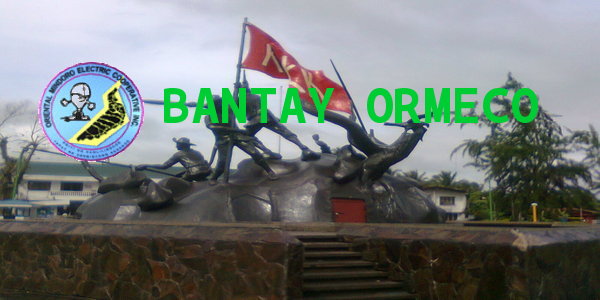Welcome Kabayan!
Feel free to browse around for photos, stories and information all about Naujan.
Kanlungan sa Naujan
Categories
-
Recent Posts
Recent Comments
- Vener EStorque Albufera on Naujan Academy
- Fr Matthew Gibson on San Nicolas de Tolentino, Patron Saint of Naujan
- rhealyngerpacio on The 70 Barangays of Naujan
- Arvin Parin on Inarawan National High School (INHS)
- Aiko Passion Mendoza on Municipal Government Offices
-
Like Us on FB
DISCLAIMER
Naujan.com, unless otherwise noted, do not own the pictures posted in this site. Credits are due to our fellow Naujeños who continue to share their stories, information, and photos to our kababayans everywhere.
-
Background photos by Marlon T. Abuan, Raymund Valenton, JL Reyes, Mon Robles, Norman Belino, Jay Feudo Hernandez and Dr. RM Del Mundo.

Nov
30
2013
 4
4I was having a chat with a friend who’s currently in Naujan that night. We were in the middle of a conversation when, suddenly, the light behind him starts to flicker. What’s going on I asked? “Nah it’s getting regular now, the brownouts,” he said.
As if a premonition, the lights went out, and our chat ended. I don’t get it. With all the news lately about new power plants being set-up for use of Ormeco consumers, new deals made with several power producers, don’t we have enough power yet?
I guess the need for steady power is commensurate with the development of a specific area. I was happy to think then that the development of Oriental Mindoro continues since it continues to expand its power needs.
But while I struggle to contemplate on the actual requirements compared to the actual infrastructure available to deliver such requirements, I was made aware that a different kind of power struggle is currently at play within Ormeco itself.
A HOUSE DIVIDED
While not everybody is aware, a drama had been brewing within the ranks of Ormeco for a while. A group of entrepreneurial members had seen the opportunities that have opened up as a result of the EPIRA Law.
The Movement for Consumer Ownership of Ormeco (MCOO), represented by former SEC Commissioner Thaddeus Venturanza, lawyer Marlo Masangkay and former Ormeco Director and businessman Dennis Alcancia, was espousing that Ormeco convert itself from a non-profit to a fully stock cooperative, as stated on Chapter 7 of the Epira Law.
It held a member-initiated referendum and gathered 37,268 votes, or about 30 percent of the 121,626 registered members of Ormeco.
According to Cooperative Development Authority (CDA) rules, the process was legitimate and so their application was received by CDA and last April its interim board was granted a certificate by Engr. Dante Hernandez of CDA-Oriental Mindoro, giving them (as Ormeco) a juridical personality as a stock cooperative.
This event seems to reiterate that Ormeco is now under the jurisdiction of CDA. In fact, the interim board of the CDA-registered Ormeco had invited the existing board to participate in the election of a newly CDA-registered Ormeco.
To which the current Ormeco Board disagrees.
The current board of Ormeco, under its President Audel Arago, argued that what the MCOO did was contrary to law, as a referendum was already set and decided upon by its board to commence on August 2016. And that Ormeco under Presidential Decree No. 269 remains under the auspices of the National Electrification Administration and not the CDA.
He added that the current board is not disregarding the clamor of its membership for the conversion into a stock cooperative, but only that the referendum should not happen until August 2016 as agreed upon on its General Assembly last March 26, 2011. The board and the General Assembly had stated that the more pressing concern at hand is Ormeco’s target of electrification of the entire Oriental Mindoro before it can actually decide if it wanted to convert itself.
But in a legal blow to the current NEA-led Ormeco, RTC Branch 40 Judge Tomas Leynes, in a decision dated Aug. 19, ruled that Ormeco should now be placed under the Cooperatives Development Authority (CDA), and directed the Ormeco under the NEA to stop “from interfering with the affairs and actions of the transition committee and interim board of directors of (CDA-registered) Ormeco.”
However, on September 30, 2013, the NEA, through its administrator Editha Bueno, issued an order for the current board for a referendum on February 9, 2014 on whether the members would like to remain as a non-stock non-profit under the NEA, or register with the CDA as a cooperative.
PLAYING FOR STOCKS OR POWER?
It seems the issue within Ormeco is deeper than the issue of its conversion. But before we dwell on that thought, let us put the issue at hand first and foremost. And that is the conversion of Ormeco from a non-profit non-stock electric cooperative into a stock cooperative.
While it seems the way the MCOO handles its registration with the CDA is somehow questionable, at the end of the day, it acted according to rules set on CDA guidelines and the Epira Law.
But on the other hand, it acted contrary to the current and legally recognized board and pre empted the filing of the CDA registration, which the current board is legally inclined to do since it had no choice but to do so since the Epira Law was enacted.
It is quite obvious that the current board, by ignoring the clamor of the MCOO and its requirements under the Epira Law, allowed themselves to be outsmarted by the MCOO. The current board was made to look like they are sitting ducks by allowing the MCOO to apply the necessary procedures for the filing of Ormeco to CDA when they should have been the one spearheading the referendum so its members can finally put the issue at rest.
In short, naisahan sila.
Now since MCOO already registered Ormeco, in accordance to CDA Law and the EPIRA Law, the CDA on their part is now inclined to recognize it as such, and thus it paves the way for processing Ormeco to become a fully stock cooperative.
The RTC also had intervened and reiterated that Ormeco is now a stock cooperative under CDA rules. And now the NEA, exercising its own jurisdiction, ordered a referendum for February 9, 2014.
So now we have the CDA and the local court recognizing the CDA-registered Ormeco and its interim officers on the one hand, and the NEA recognizing the current Ormeco Board on the other.
Couldn’t be more confusing.
Now, if the CDA-registered Ormeco joins the exercise on February 9, 2014, the issue would finally put to rest, as well as the confusion.
But what if both sides – who now both had legal entities under different agencies – refused to join hands and continue to not recognize the other? This could be a very long process, one that would put all the resources of Ormeco into dust and its members into further disillusionment.
I know this first-hand. I used to manage one of the biggest transport cooperatives in the country, the Olongapo Subic Castillejos San Marcelino Transport Service and Multi-Purpose Cooperative, Inc. (OSCSMTSMPCI) based in Olongapo and Zambales. Some members pushing for their own ideology broke into our ranks. Add to that the meddling of local officials keen on controlling people’s organizations left our cooperative deeply divided and our resources left to dwindle due to continuing legal costs.
The aftermath is the creation of a breakaway group of former cooperative members that created their own. Biggest losers are the shareholders who had to suffer the costly consequences.
Now if the MCOO who is now legally CDA-Ormeco is genuine and true in their cause of entrepreneurship who just wanted to convert the non-profit electric coop into stock coop and not simply trying to outsmart the incumbent NEA-Ormeco and wrestle away control of one of the country’s top performing electric cooperatives, they should give way to the referendum set forth by NEA.
It would then be moot and academic the issue of who is duly recognized since in effect it is the very same organization who according to some of its members, just wanted to convert the nature of the coop. It would save both sides the legal ramifications of a “two entities one group” scenario that would only bring down whatever both sides are allegedly trying to achieve in the first place, to bring down power costs.
THE EPIRA LAW AND ORMECO
Republic Act 9136, otherwise known as the Electric Power Industry Reform Act (EPIRA) of 2001, was signed into law by then Pres. Gloria Arroyo. It promotes the privatization of the entire power industry. Presumably, according to its proponents, bringing the power industry into the open market would lead to competition among power players and thus would eventually lead to lower power rates.
But years after its enactment, consumers only saw that it strengthened the private sector’s control over the power industry and less about bringing the prices down.
Chapter 7 of the said law deals with the conversion of electric cooperatives into a stock cooperative under the CDA or a stock corporation under the Corporation Code.
Mandated in this law is the National Electrification Authority to prepare electric cooperative such as the Ormeco to be fully integrated into the free market. Which basically means that the NEA is tasked to make sure that electric cooperatives open themselves up for stock options.
The law forces non-profit electric cooperatives to give up its non-profit character to become of capital. The only actual options are either to become a stock cooperative or a full-pledge corporation.
While it is clear that under the new EPIRA Law, non-stock rural electric coops has no choice but to privatize itself, it is also clear that doing so would disenfranchise power consumers who are out in the far flung areas. And by liberalizing the power industry, it takes away the government’s role in the power industry and leaves it to the uncertainties of the free market forces.
The heart of the issue here for consumers is electrification, and this public service should be left provided by the state. Bringing the power industry to market competition would not bring the prices down simply because the private sector is not accountable to the people and the consumers, only to its shareholders who are naturally inclined to seek profit.
The new law is taking the lights out of not just small electric coops like Ormeco but also small consumers depending on them.
ORMECO: FROM SERVICE-ORIENTED TO PROFIT-DRIVEN
Since the electric coops are now bound to be profit-driven rather than service oriented, how then can you expect them to provide power to an area where it would not be cost-effective?
Kung magtatayo ka ng poste ng kuryente sa dulo ng Masaguing at lilimang kubo ang nakatira doon at gagamit ng kuryente, hindi bat lugi ka pa sa gastos kesa sa ibabayad sa iyo nung limang kubo para sa gastos sa pagpapadaloy ng kuryente?
But if the electric coop remains non profit, it can easily cover the costs by looking at the bigger picture and compensate the costs with its earnings on other areas of interests. Just by being non profit, it had no choice but to make sure its earnings are being returned to the consumers by providing more services.
With a profit-driven coop, it would have to think not of its service but of its return profits.
Clearly the EPIRA Law was made to privatize the energy industry. It forces rural electric cooperatives to become profit driven. It leaves small companies under the constant pressure of the open market forces.
What then would stop a profit-driven Ormeco from raising power rates if its stockholders think that it’s the best way to earn dividends? What then would stop a huge power company like, say Meralco, from taking over small players like the Ormeco? How then do we expect a profit driven Ormeco to invest in long term sustainable energies when it is forced to think of short term interest goals?
Quite obviously as the light continues to flicker, we, the consumers, are at the losing end. When, and if, Ormeco becomes fully integrated as a stock cooperative, the very same people who has no buying power would literally be…
Power-less.
4 Comments for Ormeco to Make Small Consumers Powerless
Edson Magnaye
November 30, 2013, 8:59 am
November 30, 2013, 8:59 am
Sa tuwing naririnig ko na baba ang kuryente (power bill), natutuwa ako kasi malaki ang maitutulong nito sa savings ko. Pero nung nang-galing o narinig ko ‘to from CDA Movement (sa mga taong atat na atat maging CDA ang ORMECO) natatawa ako. Indi ko man lang nararamdaman na bababa ang power bill namin, instead natatakot ako na tataas pa yun. May sinasabi sila na walang tax ang elect coop under CDA, indi ko na pinansin yun at ang napapansin ko ay pagnenegosyohan lang kami(mga small consumers) ng mga mayayaman na negosyante.
God bless Oriental Mindoro and to ORMECO.
Salamat sa blog na ‘to at sa author. Hoping mabasa ito ng lahat ng Naujenos at Mindorenos.
p.s. Permit me to share this link. Ty.
Admin
December 1, 2013, 4:56 pm
December 1, 2013, 4:56 pm
Salamat po sa kumento Mr. Magnaye. Sana nga po ay maging mas mulat ang ating mga kababayan sa mga pangyayari sa atin. Mahirap po ang maigisa tayong mga mamamayan sa sarili nating mantika, lalu nat hindi natin alam.
Mabuhay po tayong lahat.
Sylvette G. Sabaupan
December 2, 2013, 8:34 am
December 2, 2013, 8:34 am
Thank you for your post, Sir Admin..and also thank u for the comment of Mr. Magnaye…no person could better feel what we are experiencing today ,but also of course, the ones from Naujan.. I suppose if ORMECO would now be for “for profit”, it will now be subject to “stricter monitoring and control”; like how to raise revenue, cut costs..and u are right..”no power for some Naujeños”..Salamat po sa mga magagandang posts niyo and comments…
MarlonS.Badillo
December 15, 2014, 9:32 pm
December 15, 2014, 9:32 pm
Ormeco will be service oriented only if it will become a registered cooperative, it will empower the member consumer since they are the true owner of ormeco. Ormeco under NEA is a fake cooperative because they are not registered with Cooperative Development Authoriy. They are hiding under the guise of Cooperative to fool the consumer. Questions are why they did not disclose in their Financia Statement the Share Capital of Consumer as mandated in their By-Laws. Profits were lodge to Employees and Directors Fringe Benefits Account, kaya nga sabi nila sila ay Non-profi, Non Stock Cooperative…kasi ang profit….hinahatihati ng director at empleado di non-profit nga.



